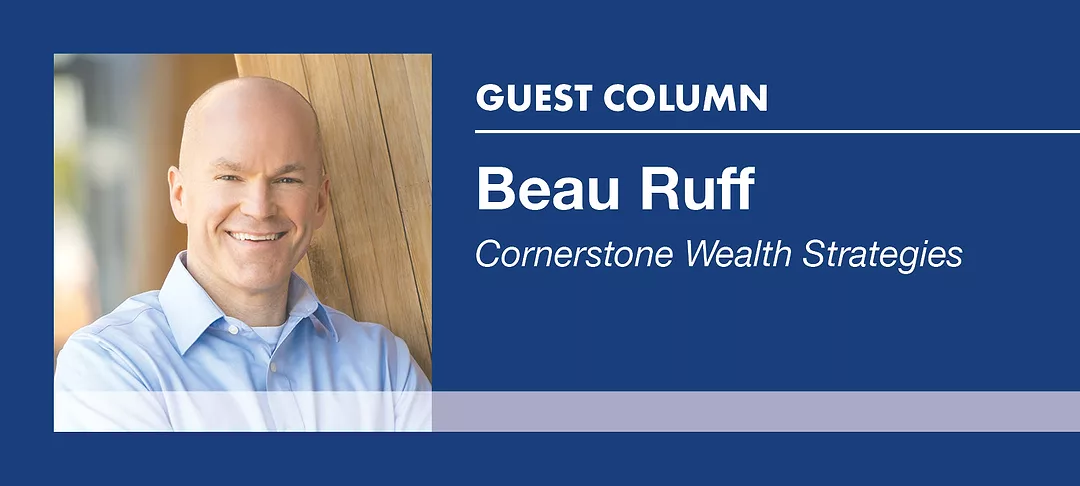
Home » Your financial planner and your attorney should be talking
Your financial planner and your attorney should be talking

February 18, 2020
By Beau Ruff
Sometimes the
concept of financial planning is considered distinct from the more laborious
and esoteric task of estate planning.
The financial plan
is the “low hanging fruit” that is first to be addressed. However, in many
important respects, the two should be considered contemporaneously to establish
a more robust, holistic plan.
A brief review of
each concept is helpful.
Financial planning
is the process and resultant plan that speaks to an individual or couple’s
financial situation during life.
Financial planning
considers current income and assets, projections for future assets and income,
current expenses and projections for future expenses. It is a method to plan
for major life events such as retirement.
By way of example,
a couple in their 50s may seek financial planning assistance to determine what
steps they need to implement to be able to retire at their accustomed standard
of living by age 62.
The financial
planner can model various market scenarios, investment returns and life
decisions, then add options and planning strategies to show the effect on the
financial plan.
Finally, the
financial planner can suggest strategies to implement and monitor the plan to
help the couple pursue their goals. Financial planning is generally performed
by licensed financial planners.
In contrast, estate
planning is the process of planning for the distribution of your assets after
your death and the process of planning for your incapacity while you are alive.
The resulting
documents might include wills, trusts or powers of attorney or health care
directives. Estate planning is performed by licensed attorneys.
Regrettably, it is
rare that the financial planner and the attorney have the time or opportunity
to discuss strategies together prior to either implementing a plan.
The coordination
adds to the cost, complexity and, frankly, the hassle of establishing and
modifying the plan at inception and as variables change through the years.
Nonetheless, the
coordination between the attorney and the financial advisor is vital to
producing the best overall outcome for the client.
Examples help to
illustrate this point.
Often, the estate
planning attorney gathers information from a client regarding current asset
information but does not extrapolate asset growth like a financial advisor. The
attorney may see that, today, the clients don’t need any estate tax planning
and therefore the attorney does not incorporate any estate tax avoidance mechanisms.
However, the
financial advisor has modeled a taxable estate based on income and savings and
market projections. The attorney should be aware of that to start discussing
estate tax avoidance techniques.
Often, the
financial advisor is less concerned with the client’s vision for the estate
plan other than just the fact that the client has an estate plan.
The financial
advisor may not know that the client has decided (in consultation with the
attorney) that 20 percent of the estate should go to charity upon the client’s
death.
The attorney simply
drafts the vision into the estate plan. But, had the financial advisor
recognized that part of the estate plan, he or she may have modeled additional
giving techniques.
For example, the
financial advisor may have proposed a gift to a charitable remainder trust that
would hit three sweet spots for the client:
• Provide a stream
of income back to the client for life, thus providing the security and income
through retirement years
• Provide an
immediate tax deduction (which a gift at death does not do)
• Accomplish the client’s goal of giving a sum to the
charity at death.
Other examples abound.
A financial advisor may track out-of-state investment
property and the attorney should know about those to place in trust or limited
liability corporations as warranted.
An attorney may spot liability concerns that would
cause a financial advisor to suggest increasing umbrella insurance coverage.
A financial advisor would understand the source of
client’s wealth (e.g. inheritance from the client’s father where father’s
intent was to keep the inheritance both separate and ultimately for grandkids)
and spark the attorney’s imagination to create an inter-vivos irrevocable trust
for the client’s children that is protected from creditors; and aligning
beneficiary designations between the financial advisor (e.g. “to my children”)
and the attorney-drafted estate plan (e.g. “to the trust for the benefit of my
children.)
The point is that your attorney and your financial
advisor should be talking and working in concert to produce tailored plans for
you.
Only by integrating the attorney side and the
financial advisory side can the client have a truly holistic plan that
represents their goals for their life and their goals for assets after passing.
Beau
Ruff, a licensed attorney, is the director of planning at Cornerstone Wealth
Strategies, a full-service independent investment management and financial
planning firm in Kennewick.
Local News Retirement
KEYWORDS february 2020





